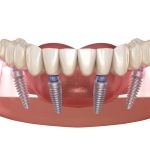Effective Tips for Preventing Tooth Sensitivity: A Comprehensive Guide
- Understanding Tooth Sensitivity
- Common Causes of Tooth Sensitivity
- Top Tips for Preventing Tooth Sensitivity
- When to Seek Professional Help
- Conclusion
Understanding Tooth Sensitivity
Tooth sensitivity, also known as dentin hypersensitivity, is a common dental condition where a person experiences discomfort or pain in the teeth when exposed to certain triggers, such as hot or cold foods, drinks, or even cold air. It's an issue that affects millions of people globally, yet many don't fully understand its causes or how to prevent it.
Common Causes of Tooth Sensitivity
Several factors can contribute to tooth sensitivity. These include:
- Worn Tooth Enamel: Over time, the protective enamel layer on your teeth can wear down due to brushing too hard or consuming acidic foods.
- Gum Recession: When gums recede, the sensitive root areas of your teeth become exposed, leading to discomfort.
- Tooth Decay: Cavities and cracked teeth can create pathways for temperature changes to affect the nerves inside your teeth.
- Bruxism (Teeth Grinding): Habitual grinding of teeth can wear down enamel and lead to tooth sensitivity.
Top Tips for Preventing Tooth Sensitivity
Preventing tooth sensitivity starts with understanding its causes and adopting habits that protect your teeth. Here are some practical tips:
1. Use a Soft-Bristled Toothbrush
Brushing your teeth with a hard-bristled toothbrush can erode enamel and contribute to gum recession. Switch to a soft-bristled toothbrush to reduce the pressure on your teeth and gums.
2. Practice Proper Brushing Techniques
Brushing too aggressively can wear down enamel over time. Use gentle, circular motions rather than back-and-forth scrubbing to ensure you're cleaning effectively without damaging your teeth.
3. Choose the Right Toothpaste
Toothpaste designed for sensitive teeth can help reduce discomfort. These products contain ingredients that block the pathways leading to your tooth's nerve, providing long-term relief from sensitivity.
4. Avoid Acidic Foods and Drinks
Highly acidic foods and drinks, like citrus fruits, coffee, and soda, can erode enamel and worsen sensitivity. Rinse your mouth with water after consuming these items and try to limit their intake.
5. Protect Your Teeth from Grinding
If you grind your teeth, consider wearing a mouthguard at night. This can prevent further enamel wear and protect your teeth from the long-term effects of bruxism.
When to Seek Professional Help
If you’ve tried over-the-counter solutions and your tooth sensitivity persists, it may be time to consult a dentist. A dental professional can identify the root cause of your sensitivity and provide treatments such as fluoride applications, desensitizing agents, or even dental bonding to address the issue.
Conclusion
Tooth sensitivity doesn’t have to be a daily struggle. By adopting the right oral care habits and understanding its causes, you can prevent and manage this common issue. Start with the simple tips outlined above, and if the problem persists, don’t hesitate to reach out to a dental professional. For more information on managing your oral health, visit Dentistry Toothtruth and explore our range of recommended products and services.







 Gardena Dental Care4.0 (416 review)
Gardena Dental Care4.0 (416 review) Taher Family Dental5.0 (161 review)
Taher Family Dental5.0 (161 review) Sons & Daughters Orthodontics Riverside4.0 (198 review)
Sons & Daughters Orthodontics Riverside4.0 (198 review) NÜVA Smile4.0 (105 review)
NÜVA Smile4.0 (105 review) Murray Orthodontics5.0 (538 review)
Murray Orthodontics5.0 (538 review) Rosen Dental Transitions5.0 (5 review)
Rosen Dental Transitions5.0 (5 review) The Importance of Oral Health Education During Pregnancy for a Healthy Pregnancy
The Importance of Oral Health Education During Pregnancy for a Healthy Pregnancy Best Tips for Brushing Your Teeth Properly for Healthy Gums: Essential Techniques for Oral Health
Best Tips for Brushing Your Teeth Properly for Healthy Gums: Essential Techniques for Oral Health Why Skipping Dental Checkups Can Lead to Bigger Oral Health Problems
Why Skipping Dental Checkups Can Lead to Bigger Oral Health Problems Advantages of Porcelain Dental Restorations
Advantages of Porcelain Dental Restorations How Can Diabetes Cause Tooth and Gum Problems? Preventing and Managing Oral Health Issues
How Can Diabetes Cause Tooth and Gum Problems? Preventing and Managing Oral Health Issues Healthy Habits for Promoting Good Oral Health and Hygiene: Tips for a Healthy Smile
Healthy Habits for Promoting Good Oral Health and Hygiene: Tips for a Healthy Smile